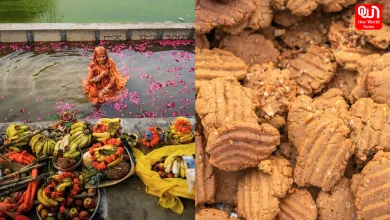Who invented butter chicken? The debate continues!
The debate between two leading names continues as they try to prove that they are teh true inventors of butter chicken, a dish loved by all!
Butter chicken: the hype and who actually invented it?
Amidst the lively hustle and bustle of Delhi’s streets, where the tantalizing aromas of spices mingle with the sounds of sizzling tandoor ovens, a gripping culinary saga is unfolding. At the center of this tale lies butter chicken, a cherished delicacy that has captured the hearts and taste buds of food enthusiasts across the globe. However, the question of its true creator has sparked a fierce legal battle, pitting two renowned restaurant chains against each other and sparking a contentious debate that has divided the culinary community in India’s capital.
The main players in this culinary drama are Moti Mahal and Daryaganj, both esteemed establishments deeply rooted in Delhi’s rich gastronomic heritage. Moti Mahal, founded by Kundan Lal Gujral, lays claim to the invention of butter chicken, tracing its origins back to the 1920s in Peshawar, now part of modern-day Pakistan. Legend has it that Gujral, inspired by the tandoori cooking method, concocted a recipe that transformed leftover tandoori chicken into a decadent dish by bathing it in a luxurious, creamy gravy infused with butter and spices.
On the opposing side stands Daryaganj, a chain launched in 2019 by descendants of Kundan Lal Jaggi, Gujral’s former partner. Daryaganj challenges Moti Mahal’s assertions, insisting that it was Jaggi, not Gujral, who helmed the kitchen and was the creative genius behind the recipes for butter chicken and dal makhani. The restaurant even went so far as to trademark the phrase “inventors of butter chicken and dal makhani,” intensifying the contentious debate.
The legal skirmish between Moti Mahal and Daryaganj has captivated the attention of food enthusiasts and industry insiders alike, sparking discussions about the commercial ownership of India’s culinary legacy. Yet, beyond the courtroom theatrics, the dispute underscores a broader trend of chefs and restaurateurs staking their claim to traditional recipes in an increasingly cutthroat market.
Sourish Bhattacharyya, a food writer, succinctly captures the prevailing sentiment surrounding the controversy, stating, “No one knows who created butter chicken.” Indeed, the dish’s origins are shrouded in mystery and likely entail a blend of culinary influences and innovations over time. From the smoky tandoor pits of Punjab to the bustling kitchens of Delhi’s iconic eateries, butter chicken has evolved into a culinary icon that transcends geographical and cultural boundaries.
However, the battle for ownership of butter chicken is not unique to India. Similar disputes have arisen over other emblematic dishes, such as basmati rice and rasgulla, highlighting the intricate complexities of food identity and cultural heritage in an interconnected world. Even British-Indian creations like chicken tikka masala and balti have faced challenges in asserting their authenticity and rightful ownership.
As the legal saga continues to unfold, one thing remains abundantly clear: butter chicken’s remarkable journey from humble beginnings to global stardom underscores the enduring power of food to unite, inspire, and delight. Whether savored amidst the vibrant streets of Delhi or relished in upscale dining establishments worldwide, butter chicken will always hold a special place in the hearts and palates of discerning food connoisseurs.
Ultimately, perhaps the true essence of butter chicken lies not in its disputed origins, but in the sheer joy it brings to those fortunate enough to indulge in its rich, aromatic flavors—a legacy that transcends the confines of time, place, and proprietorship.
Like this post?
Register at One World News to never miss out on videos, celeb interviews, and best reads








